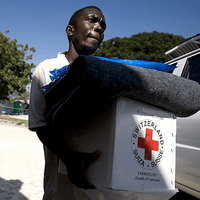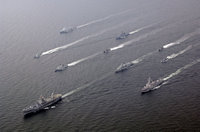
At the 2008 summer Olympic Games in Beijing, the New York Times columnist Tom Friedman observed something intriguing about the powerful American team, which won the overall medal count for the games. After wandering through the athletes’ village, he noted, “The Russian team all looks Russian; the African teams all look African; the Chinese team all looks Chinese; and the American team looks like all of them.” The United States, Friedman said, is the clearest example of a nation whose “strength comes from diversity.” The most powerful nations in history have all followed a similar formula. In “Day of Empire,” […]




